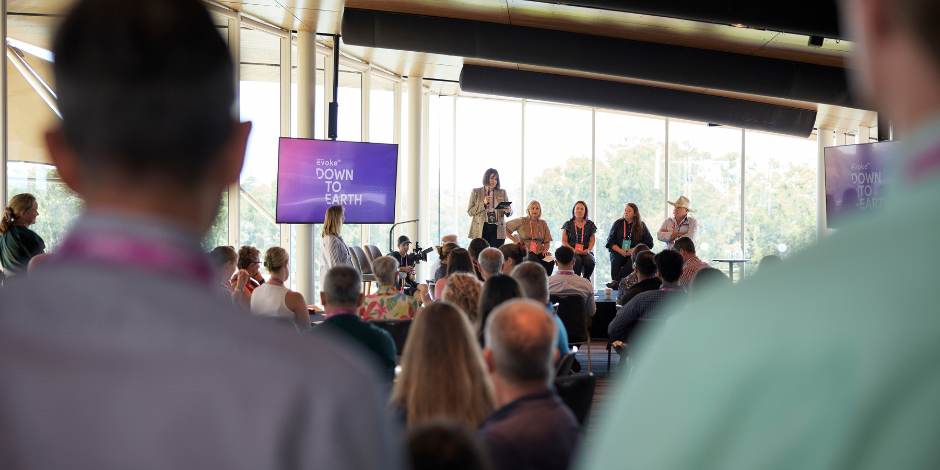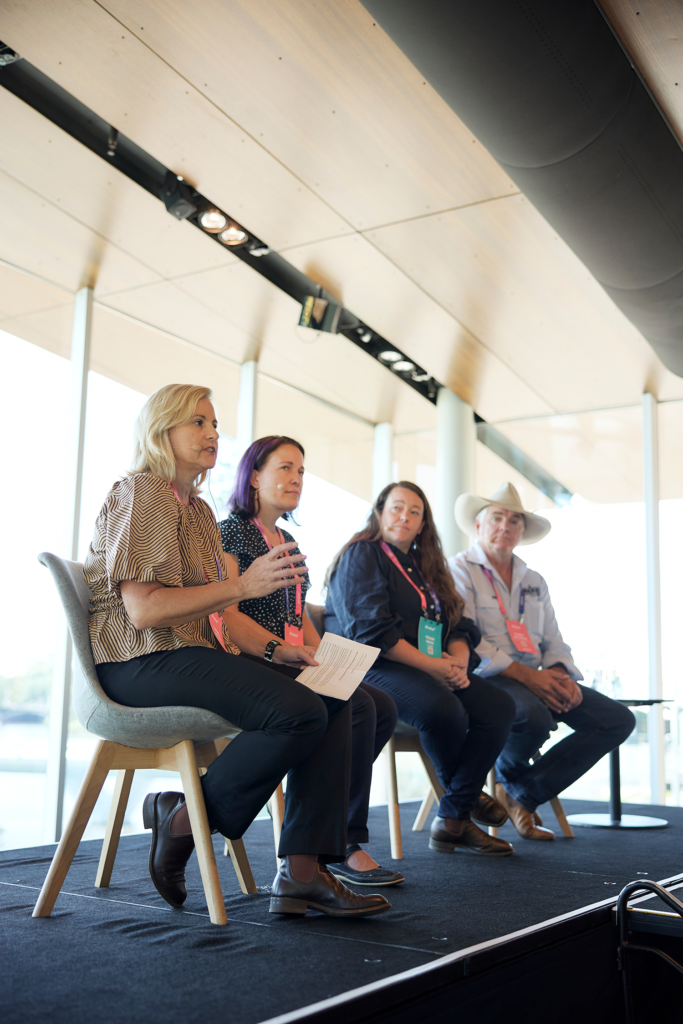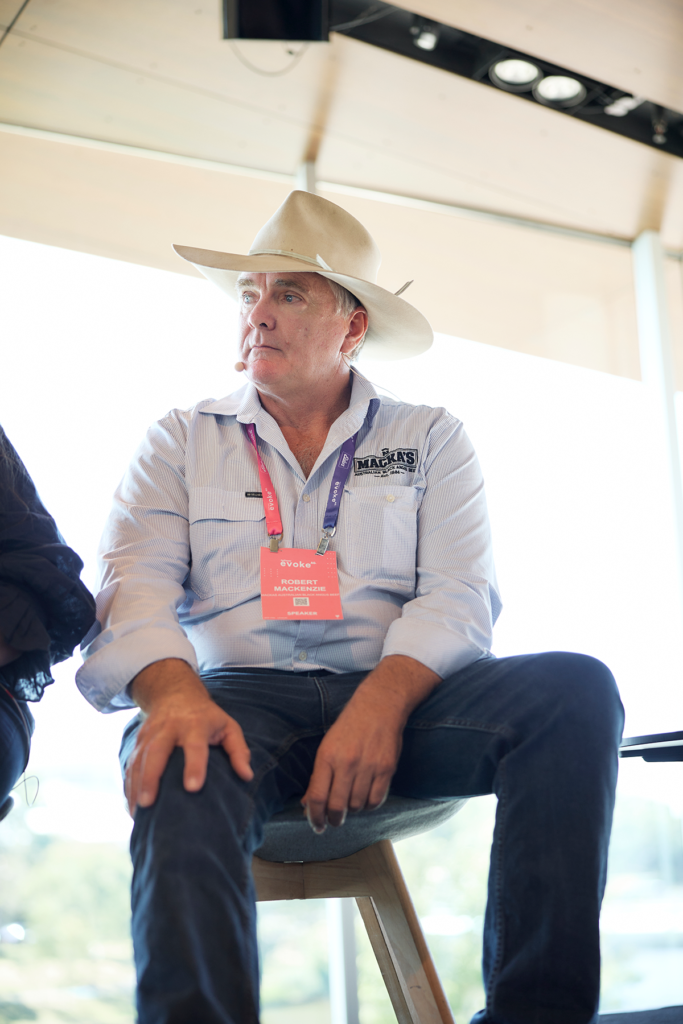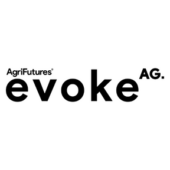Why on-farm sustainability measurement is worth the effort
Farmers are increasingly expected to share sustainability metrics with their supply chain, customers, consumers and others, and acquiring those metrics can be complicated and expensive. A panel discussion presented by evokeAG. 2023 Silver Partner CommBank, concluded that measurement is not only vital, but can deliver great opportunity on and off farm.
 CommBank General Manager Agribusiness Natasha Greenwood facilitated a panel discussion at evokeAG. 2023 with CommBank’s National Director Agribusiness Carmel Onions, Dr Natalie Doran-Browne, Director of Science for greenhouse gas and carbon reporting platform FLINTpro, Tegan Nock, Co-founder and Chief Product Officer at Loam and Producer Robert ‘Macka’ MacKenzie, Managing Director of Macka’s Australian Black Angus Beef.
CommBank General Manager Agribusiness Natasha Greenwood facilitated a panel discussion at evokeAG. 2023 with CommBank’s National Director Agribusiness Carmel Onions, Dr Natalie Doran-Browne, Director of Science for greenhouse gas and carbon reporting platform FLINTpro, Tegan Nock, Co-founder and Chief Product Officer at Loam and Producer Robert ‘Macka’ MacKenzie, Managing Director of Macka’s Australian Black Angus Beef.
Session facilitator, CommBank General Manager Agribusiness Natasha Greenwood, said the conversation around sustainability projects has shifted, with farmers recognising the benefits in investing in these practices and projects.
“The discussion in the industry has moved from interest to intent, and our goal now is to support the move from intent to action,” she said.
But tracking and assessing Environmental, Social, and Governance (ESG) programs is still seen as a challenge rather than an opportunity for many producers.
CommBank’s National Director Agribusiness Carmel Onions says that committing to measurement might initially be about meeting reporting obligations, but it achieves so much more.
“We will certainly get to a point where sustainability measurement and reporting is a requirement, but the big story is that there are so many other benefits that come alongside it. As an industry, we are starting to see that investing in sustainability, and measuring our progress, is not a burden but an opportunity. Once you start to measure something, it informs a new level of focus and understanding about the underlying areas to be solved. And this can help bring visibility to the opportunities to improve yields, reduce costs, and sustain market access from adopting practices that reduce emissions to net zero or enhance natural capital.”
 Real results, on farm
Real results, on farm
Producer Robert ‘Macka’ MacKenzie, Managing Director of Macka’s Australian Black Angus Beef, says the ROI on sustainability and measurement investment has been clear in his operation. In 2022, Macka’s decided to do 1,200 soil samples and in February 2023 we increased that number to 1,400.
“One of the reasons we did all that measurement was because we wanted to prove that it is doable. And it is. The truth is, it’s not as daunting as you think it’s going to be, and when you look at profitability versus sustainability, the balance is definitely there.”
In fact, Macka’s says his investment in sustainability, and his ability to track his results, has led to demonstrable improvements in his land and his livestock.
“Our sustainability journey has made our cattle more fertile, they produce more milk, they gain more weight. The water retention in our pastures has improved, which means grass still grows even when it’s dry.”

Right now, Macka’s does not pass on the cost of measurement, including a range of sensors and sophisticated reporting technology, which he says customers are not ready to pay for, but the clear positive impacts of his program still make the investment worthwhile.
“We do it because it’s what our customers want, because we know it’s achievable, and because it’s opening opportunities – plus it’s the right thing to do,” he says.
No silver bullet
Dr Natalie Doran-Browne, Director of Science for greenhouse gas and carbon reporting platform FLINTpro, says on-farm measurement is valuable, but it is not simple.
“Farm systems are complex, integrated and dynamic. Soils, nutrients, water, crops, livestock – change any one of them and it affects the whole, and that is without even considering weather and climate change,” she said. On top of that, there’s ambiguity around what sustainability methods, standards and metrics should be used with these farm measurements.
Frameworks that simplify the process of integrating farm data measurements and methods, like FLINTpro, can provide the answers to a variety of questions that are being asked around sustainability.
Panellist Tegan Nock, Co-founder and Chief Product Officer at Loam also noted that the conversation to date has largely focused on livestock production systems, with the cropping sector now starting to be integrated fully into the discussion.
“We need to look at where we are now, to know where and how to get started,” Tegan said. “Once we do, there are benefits to be found, including not only opening new markets, but also seeing increases in the value of our farms.”
Tegan said it’s important that all producers can benchmark themselves and utilise data in a way that makes financial sense. “There’s going to be a cost to business so the question is what’s the value proposition.”
CommBank was a Silver Partner at evokeAG. 2023. For information about CommBank’s suite of sustainability-related finance products for agribusiness, visit the website.
If you have a complaint in respect of this information, the Commonwealth Bank’s dispute resolution service can be accessed on 13 22 21 or commbank.com.au/support/compliments-and-complaints
